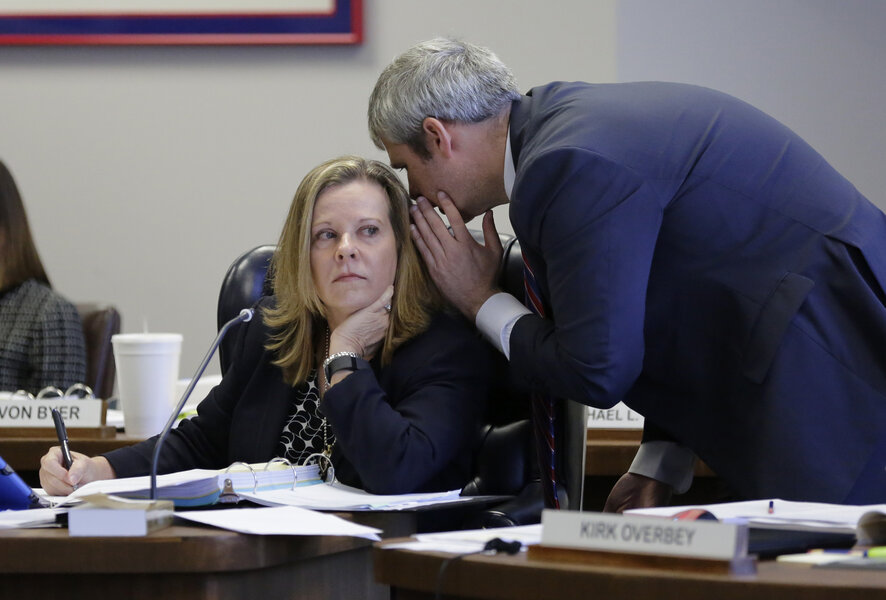Texas rejects allowing academics to fact-check public school textbooks
| AUSTIN, Texas
Top Texas education officials rejected Wednesday letting university experts fact-check textbooks approved for use in public-school classrooms statewide, instead reaffirming a vetting system that has helped spark years of ideological battles over how potentially thorny lessons in history and science are taught.
The Board of Education approves textbooks in the nation's second-largest state and stood by its vetting process — despite a Houston-area mother recently complaining that a world geography book used by her son's ninth grade class referred to African slaves as "workers." The publisher, McGraw-Hill Education, apologized and moved to make immediate edits.
Republican board member Thomas Ratliff had proposed bringing in academics to check textbooks only for factual errors, but his measure failed 8-7 after lengthy discussion.
"I know people are concerned about pointy-headed liberals in the ivory tower making our process different or worse," Ratliff, of Mount Pleasant, said before the vote. "But I hold our institutions of higher education in fairly high regard."
Texas has 5.2 million public-school students, a large enough textbook market that publishers making modifications to meet its standards can affect material in other states.
As it mulls books proposed for approval, the board relies on citizen review panels — often teachers, parents, business leaders or other experts — whose members are nominated by board members. Other Texans can also check the books on their own and identify what they see as errors in public testimony during board meetings.
Rather than allowing academics to intervene, the board voted unanimously to tweak its current system, mandating that review panels be made up of "at least a majority" of people with "sufficient content expertise and experience" as determined by the Texas education commissioner.
"I think we're making it stronger and better and more expert than in the past," said Marty Rowley, an Amarillo Republican. San Antonio Republican Ken Mercer called the system "the best in America."
Ratliff had noted that some conservative board members have long stocked review panels with people more concerned with ideology than subject matter expertise. That gave rise to controversies over how textbooks handle climate change and evolution, or how they describe the influence biblical figures such as Moses had on America's Founding Fathers.
Supporters of his changes said it might have softened years of fights over textbooks that long have thrust the Republican-controlled board into the national spotlight.
"The public perception of our process is not positive and I think we all know that," said Erika Beltran, a Dallas Democrat.
After the proposal failed, Kathy Miller, president of the board watchdog group the Texas Freedom Network, said in a statement: "With all the controversies that have made textbook adoptions in Texas look like a clown show, it's mindboggling and downright embarrassing that the board voted this down."
Other board observers, though, said the current system didn't need major fixes.
Roy White, a retired Air Force pilot and head of a conservative group called Truth in Texas Textbooks, told members that the state "was fortunate" to have its current system. But he also complained that past textbooks deemphasized the role of Islamic extremism in the Sept. 11 attacks.
Reviewers from White's organization raised scores of objections to history and social studies textbooks up for board approval last year. He said its reviewers checked the McGraw Hill world geography book and missed the "workers" error, but they found 13 others — including objections to how it covered the concepts of jihad and Cuban communism.
"You got humans involved, there are going to be some errors," White said.





